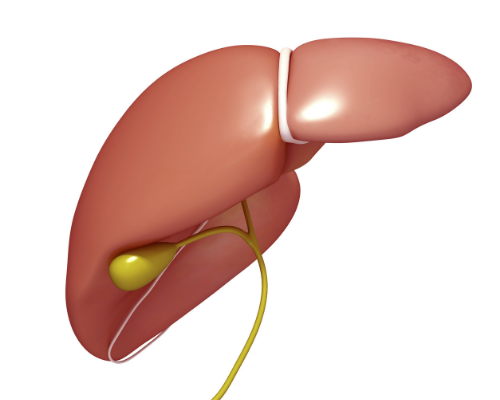Liver Fibrosis: Symptoms, Causes, Reduction Strategies and Homeopathic Treatment
Epileps’s Homeopathic Treatment in Pakistan
February 16, 2025Liver Thrombosis: Symptoms, Causes, and Homeopathic Treatments
February 16, 2025Liver fibrosis is a condition where excessive scar tissue forms in the liver as a response to continuous damage and inflammation. It is a progressive disease that, if untreated, can lead to severe liver conditions like cirrhosis. This article provides an in-depth look at liver fibrosis, covering its symptoms, causes, ways to reduce its effects, homeopathic treatments, and recent advancements in research.
Symptoms of Liver Fibrosis
Liver fibrosis often progresses silently, with few or no symptoms in its early stages. As the condition advances, the following symptoms may appear:
- Fatigue:
- Persistent tiredness and low energy levels.
- Jaundice:
- Yellowing of the skin and eyes due to a buildup of bilirubin in the blood.
- Abdominal Pain and Swelling:
- Pain in the upper right abdomen and fluid buildup in the abdominal cavity (ascites).
- Nausea and Loss of Appetite:
- Reduced interest in food and frequent bouts of nausea.
- Easy Bruising and Bleeding:
- Reduced clotting ability due to impaired liver function.
- Edema:
- Swelling in the legs and ankles.
- Dark Urine and Pale Stools:
- Indicating bile flow issues due to liver dysfunction.
Causes of Liver Fibrosis
Liver fibrosis results from chronic liver injury and the body’s attempt to repair the damage. Key causes include:
- Chronic Hepatitis B and C:
- Persistent viral infections that cause inflammation and damage to liver cells.
- Non-Alcoholic Fatty Liver Disease (NAFLD):
- Accumulation of fat in the liver unrelated to alcohol consumption.
- Autoimmune Liver Diseases:
- Conditions like autoimmune hepatitis where the immune system attacks liver cells.
- Genetic Disorders:
- Disorders such as Wilson’s disease and hemochromatosis that lead to abnormal accumulation of substances in the liver.
- Toxins and Medications:
- Long-term exposure to toxic chemicals or certain drugs.
- Parasitic Infections:
- Conditions like schistosomiasis can contribute to liver fibrosis.
How to Reduce the Effects of Liver Fibrosis
Effective management of liver fibrosis involves addressing the root cause and taking measures to reduce liver damage:
- Healthy Diet:
- Eat a liver-friendly diet rich in vegetables, fruits, whole grains, and lean proteins while avoiding processed foods and saturated fats.
- Maintain a Healthy Weight:
- Exercise regularly and follow a balanced diet to reduce fat accumulation in the liver.
- Vaccination:
- Get vaccinated against hepatitis A and B to protect the liver.
- Manage Underlying Conditions:
- Properly treat conditions like diabetes or high cholesterol.
- Regular Medical Checkups:
- Monitor liver function through blood tests and imaging studies.
Important Note: Homeopathic treatments should be administered by a qualified practitioner based on an individual’s symptoms and health history.
Recent Research and Advancements
Modern research has significantly advanced our understanding of liver fibrosis, leading to promising developments:
- Antifibrotic Therapies:
- New drugs targeting fibrosis pathways to halt or reverse scar tissue formation are under clinical trials.
- Non-Invasive Diagnostic Tools:
- Techniques like transient elastography (FibroScan) and advanced blood tests are reducing the need for liver biopsies.
- Stem Cell Therapy:
- Exploring the potential of stem cells to repair liver tissue and regenerate healthy cells.
- Gut Microbiome Research:
- Studies suggest that a healthy gut microbiome plays a crucial role in liver health.
- Immunotherapy:
- Investigating immune-based treatments to reduce liver inflammation and fibrosis progression.
Homeopathic Treatments for Liver Fibrosis
Homeopathy offers supportive care for liver fibrosis by focusing on the overall well-being of the patient and stimulating natural healing processes.
Dr. Sabeel homeopathic treatment provides a holistic approach to treating liver fibrosis by building expertise in this area.
Dr. Sabeel has buid expertise in the treatment of liver fibrosis for many past years. He has treated a number of pateients who have remarkably recovered from . This can be proven from the laboratroy tests of the patients.
Conclusion
Liver fibrosis is a serious but manageable condition if detected early. Through lifestyle changes, proper medical care, and supportive treatments like homeopathy, individuals can improve their liver health and quality of life. The advancements in research bring hope for better diagnostic tools and more effective therapies, underscoring the importance of early intervention and continued exploration.

